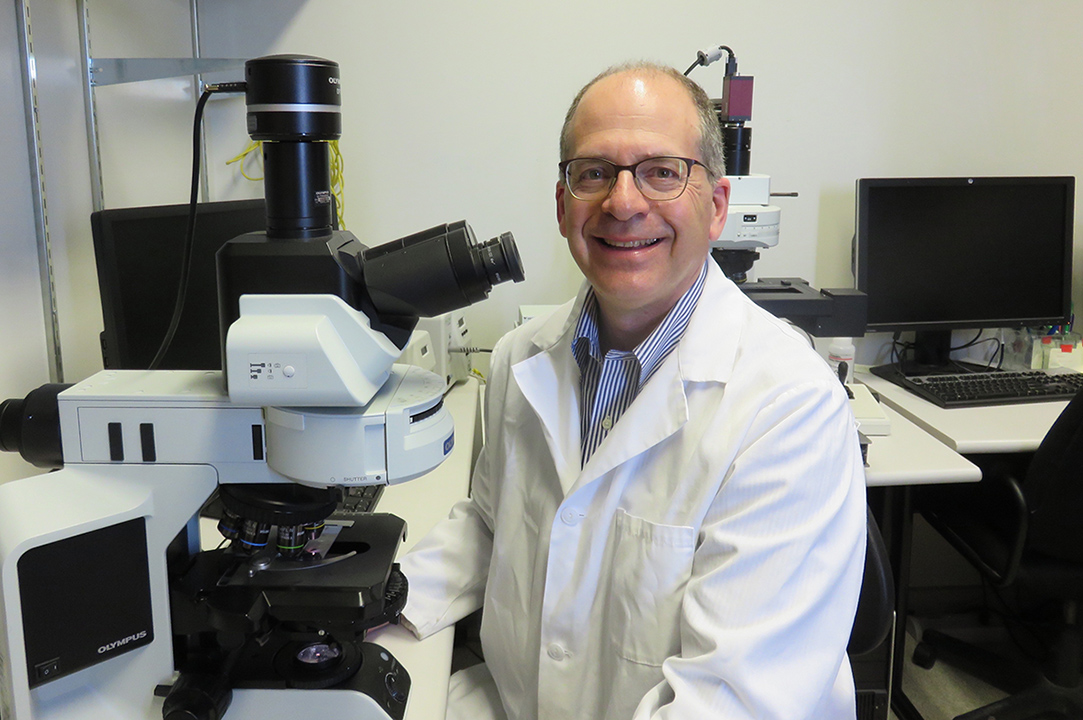
Saskatoon City Hospital Foundation Proud to Support Vital MS Research in Saskatchewan
Recently, the Saskatoon City Hospital Foundation (SCHF) generously donated $750,000 to the University of Saskatchewan (USask) College of Medicine to support research on Multiple Sclerosis (MS).
By Sherry Buckler, Director of AdvancementDr. Michael C. Levin (MD), Saskatchewan Multiple Sclerosis Clinical Research Chair at the college, and his research team are focused on developing medications to combat nerve cell damage associated with MS. The disease, for which there is no known cure, affects approximately 3,700 people in Saskatchewan, which has one of the world's highest MS rates.
“Funding is a crucial part of continued research and discovery for MS research and the commitment from our partners at the Saskatoon City Hospital Foundation will help us get closer to positive outcomes for MS patients everywhere,” said College of Medicine dean, Dr. Preston Smith (MD). “Because of their generosity, Dr. Levin and his team can continue their ground-breaking work to find treatments for this devastating disease.”
MS is a central nervous system disorder that impairs communication between the brain and spinal cord, resulting in muscle weakness, lack of muscle control, vision problems, and other neurological symptoms. Since the chair was established in 2017, Dr. Levin and his team have made remarkable progress. They've identified an abnormal protein, A1, in the brains of MS patients, which triggers nerve cell death when it gets stuck in the wrong part of nerve cells. Using advanced drug design, they've developed therapies that move A1 to its normal location, preventing nerve cell death and promoting regeneration. This breakthrough has the potential to prevent lifelong disability caused by MS.
The SCHF's recent commitment of $750,000 over three years will support the chair's critical needs, including infrastructure, research support, and essential equipment, all aligned with the goal of advancing MS treatment and ultimately finding a cure.
The SCHF has a longstanding history of supporting MS research in Saskatchewan, including a significant donation in 2010 to establish the chair position in collaboration with the USask College of Medicine and the Saskatchewan Health Research Foundation.
To learn more about the pioneering MS research at the University of Saskatchewan, visit https://research-groups.usask.ca/skms-office
